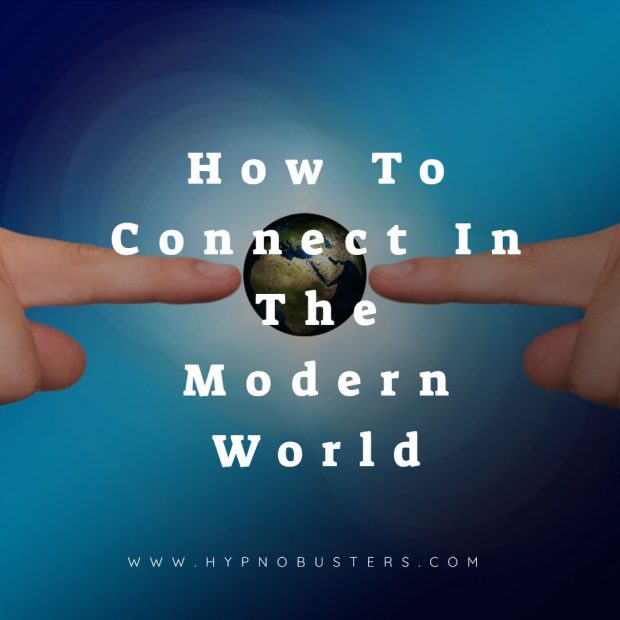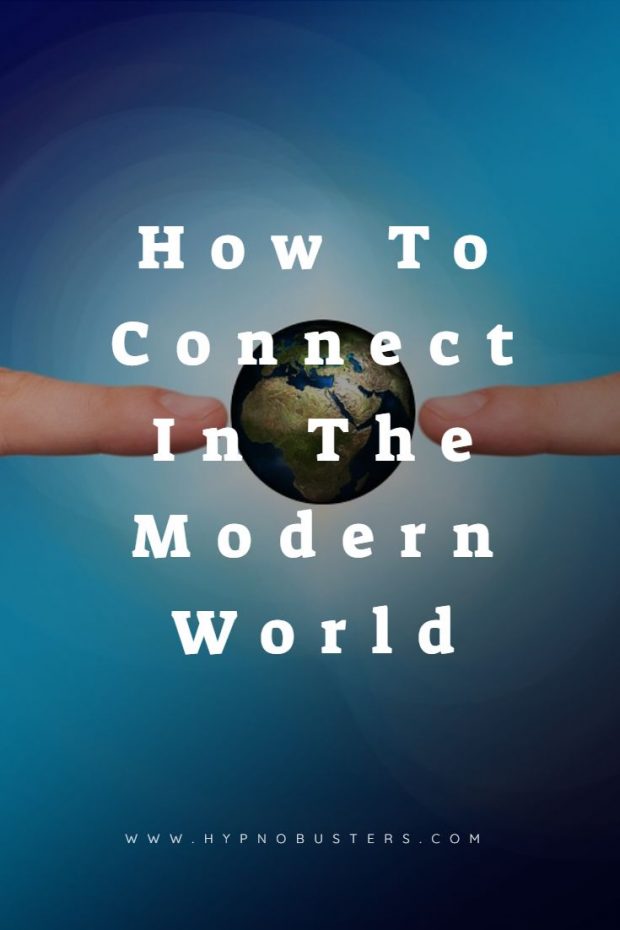Humans are naturally sociable creatures. And in our distant hunter-gatherer past, we’ve lived in groups. Hunting together, fighting away danger, and huddling close for warmth and protection.
Millions of years of this lifestyle has given us a psychological need for connection. We intuitively know we have safety in numbers. So to survive, we’re hard wired to seek connection. But unfortunately modern life often pushes us away from being close to others.
The Changing World
The world is rapidly changing. More people than ever are living alone. Jobs are increasingly being performed remotely from home. Trips to the shops are being replaced with online shopping. Nights out are being replaced with drinking at home and takeaways. Even dating is increasingly done online.
Communities are not what they were. People move in and out of rented accommodation. Giving little stability to local communities. Pubs and bars are closing by the day. Which were once the hubs of local communities.
Even the simple act of watching TV has changed. Instead of families watching TV together, they now watch individual tablets and mobile phones. When you walk into a family home, everyone is watching their own thing on a separate screen. And although they’re in the same room, they might as well be a million miles apart.
The Coronavirus pandemic has exacerbated these problems. We no longer shake hands or hug friends we bump into. Our faces are covered with masks, in a desperate attempt to prevent disease. And we recoil in horror when someone sneezes within a hundreds yards of us.
Many people find themselves spending an increasing amount of time alone. And although we live in a safer world than our ancient ancestors, our brains haven’t yet evolved away from this thinking. We still need close physical connection to feel safe.
Technology is evolving faster than ever in the history of mankind. And compared to this, our evolution is painfully slow.
And because connection is so difficult to find, humans seek alternative ways to satisfy this craving. And sometimes they’re not healthy.
Drugs and alcohol provide a temporary relief from feeling a lack of connection. But as much as they provide a relief, they solve nothing. In fact when you wake up, you have two problems for the price of one. You still feel disconnected, AND have a sore head! But all is not lost.
We’re Connected In A Different Way
In another way, we’re more connected than ever. Technology has made long distant communication accessible, instant, and cheap. I can pick up my phone and almost instantly message my brother across the Atlantic at the push of a button.
Social media has allowed me to connect with people from my past that I probably would never have contacted again. Old friends from school are accessible at the touch of a button. There’s online groups on almost any topic imaginable, full of passionate and knowledgeable people. But there’s more than this.
We’re More Connected Than We Realise
Even without the internet, we ARE incredibly connected. It’s just that we don’t always realise it.
For just a few pounds, I can walk into a cafe and buy a delicious meal. The oranges in my orange juice might have been grown in California, by a team of agriculturalists. The Olives in my salad, grown and picked in Italy. All transported thousands of miles with the skills of pilots, sailors, and drivers. Then they’re distributed to supermarkets, where staff display and serve these produce. Literally hundreds of people have collaborated and connected to bring you your meal.
I can turn my tap on at home for instant clean water. From a system built and maintained by a collaborative effort of thousands of people.
The air we breathe is constantly recycled, whether we wear face masks or not. If someone pollutes the air, then we all suffer. We all live together on this one planet called Earth.
Whilst we may not feel connected at times, the fact is that we are. Incredibly so. We rely on each other perhaps more than we realise. And we receive this help all the time. I think it’s useful to remind ourselves of this every now and then.
Our brains have not yet evolved to fully appreciate our new ways of connecting. And they still cry out for meaningful face-to-face connections.
How To Connect
We must embrace our new technology and appreciate it’s amazing abilities to keep us connected. Use it in a positive way to enhance your connections. Video chat friends and family that are difficult to reach. Message and ask how they’re doing. Be a shoulder to cry on when you know the chips are down. But we must also satisfy our natural urges. Remember, EVERYBODY is hard-wired to connect.
Put down your phones every now and then, and connect with the world around you. Watch a film with your family or friends. Call round and visit people if you can. Let them know you’re there for them, and the favour will often be returned.
Talk to your neighbours. Enrol on a course at your local college. Maybe join a gym. There’s opportunities all around to connect in a physical sense. If you’re not much of a people person, then take a walk in nature to feel connected to the Earth. Look at the wild life. And observe the changing seasons.
We must change our way of thinking. And learn to appreciate our basic needs. Technology is a great addition to the opportunities to connect. But we must stretch beyond this and connect in more traditional ways.
We must find ways to satisfy our natural urges for physical connection. And we must learn to appreciate the connections we already enjoy.
You’re not alone. And there’s a whole world out there waiting for you.
Please CLICK HERE To Check Out My Confidence Booster Hypnosis Session



